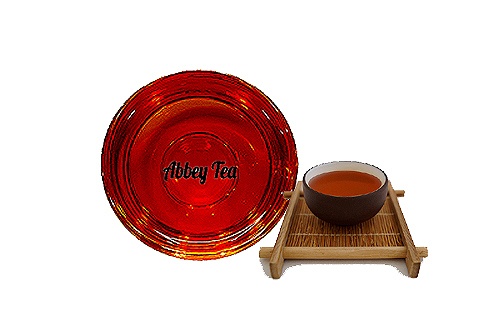2016 HE KAI ZHEN MIN - (ripe) - mini tong
China - BuLan Shan mountain, XiShuangBanna county, Yunnan province
* Temporarily out of stock.
We are delighted to offer you our latest discovery, Little Hekai Gem, a mini tong of 7 bengs (cakes). Each cake is individually wrapped in special paper. The mao cha (raw tea leaves) is from Hekai mountain in the BuLang Shan area. The tea trees are grown naturally, alongside other wild plants at altitudes of between 1700 -1900 metres in jungle conditions without any pesticides or chemical fertilisers. Aged between 40-60 years old, called Qiao Mu, the Bulang farmers manage and take care of the trees in the traditional way. The area is shrouded in fog for 6 months of the year and these conditions along with the terrain, produce a tea of excellent quality. The large leaves are handpicked, air dried, pan fried, fermented, steamed and then pressed in moulds.
This practice of pressing the tea into cakes was originally developed in the Ming dynasty to make the tea easier to transport over long distances. The cakes were stacked in piles of seven, called a tong, wrapped in bamboo leaves, then 12 tongs were placed into a basket and strapped to either side of a mule or horse for the journey along the Teahorse routes which ran across the mountain ranges between China and Tibet, north to Siberia and south to Thailand.
Even today the farmers still produce the tea following the traditional processing method passed down by their ancestors over the years. The resulting high quality tea has a floral and sweet lingering taste with a strong aftertaste and the leaves can be infused several times.
- Name:
- 2016 Little Hekai Gem (ripe)
- Chinese Name:
- 贺开珍茗 HE KAI ZHEN MIN, 勐海七子饼 MENGHAI QIi ZI BING
- Origin:
- BuLan Shan mountain, Xishuangbanna county, Yunnan province
- Harvest:
- Autumn 2016
- Pressed:
- 2017 - Gao Shan Yuan Tea Factory, Menghai Town
- Picking standard:
- Whole leaves
- Dried tea colour:
- Greenish brown
- Aroma:
- Light floral perfume
- Liquor:
- Reddish brown
- Taste:
- Floral, rich, sweet aftertaste
- Time of day:
- Anytime
- Brewing:
- Multiple, 6x and more - to taste
Brew the perfect cup of
HE KAI ZHEN MIN - (ripe) - mini tong

- 1 pcs/ 300 ml

- 100 °C

- 3 - 5 minutes
Share this product:
* Temporarily out of stock.
We are delighted to offer you our latest discovery, Little Hekai Gem, a mini tong of 7 bengs (cakes). Each cake is individually wrapped in special paper. The mao cha (raw tea leaves) is from Hekai mountain in the BuLang Shan area. The tea trees are grown naturally, alongside other wild plants at altitudes of between 1700 -1900 metres in jungle conditions without any pesticides or chemical fertilisers. Aged between 40-60 years old, called Qiao Mu, the Bulang farmers manage and take care of the trees in the traditional way. The area is shrouded in fog for 6 months of the year and these conditions along with the terrain, produce a tea of excellent quality. The large leaves are handpicked, air dried, pan fried, fermented, steamed and then pressed in moulds.
This practice of pressing the tea into cakes was originally developed in the Ming dynasty to make the tea easier to transport over long distances. The cakes were stacked in piles of seven, called a tong, wrapped in bamboo leaves, then 12 tongs were placed into a basket and strapped to either side of a mule or horse for the journey along the Teahorse routes which ran across the mountain ranges between China and Tibet, north to Siberia and south to Thailand.
Even today the farmers still produce the tea following the traditional processing method passed down by their ancestors over the years. The resulting high quality tea has a floral and sweet lingering taste with a strong aftertaste and the leaves can be infused several times.













